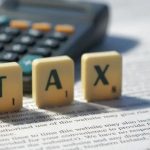The Ministry of Finance and National Economy in Bahrain has recently revealed an economic recovery plan that includes various achievements, developments, and performance indicators. The primary goal of the plan is to create job opportunities, with a focus on employing Bahraini citizens in the labour market. The plan aims to employ and train 20,000 and 10,000 Bahrainis annually until 2024. In 2022, 29,995 Bahrainis were employed and 10,344 received training, while in 2023, 29,533 Bahrainis were employed and 11,078 were trained.
The economic recovery plan also includes streamlining commercial procedures to attract over $2.5 billion in investments by 2023. By the end of 2023, more than $2.8 billion in investments had been secured. Additionally, over $30 billion worth of major development projects have been launched, with 13 projects already completed. This focus on emerging sectors is expected to boost the non-oil GDP by 5% in 2022. In reality, the non-oil GDP actually grew by 6.6% at constant prices in 2022, and the total budget deficit decreased by 83% compared to estimates. Moreover, 91% of the National Labour Market Plan (2021-2023) has been completed, and a new plan for 2023-2026 has been introduced.
The Labour Fund (Tamkeen) has implemented new programs to enhance the capabilities and competitiveness of Bahraini citizens. Additionally, new systems and digital platforms have been launched to simplify commercial procedures, particularly in urban planning and government land investment. Efforts are being made to improve economic integration, such as the launch of the Global Centre for Maritime and Air Cargo Services. The tourism sector strategy has clear goals for inbound tourism spending, average tourist nights, GDP contribution, visitor numbers, and average visitor spending per night, which are currently being evaluated for further improvement.
The logistics sector strategy aims to meet targets for air freight capacity, container freight capacity, sector ranking, and GDP contribution by 2030. The financial services sector strategy has achieved its goals for GDP contribution, employee numbers, and small enterprise financing. The National Energy Strategy focuses on energy security, enhancing natural resources, and diversifying energy sources, with a goal to reduce emissions by 30% by 2035 and reach net-zero by 2060. Tamkeen continues to implement its 2021-2025 strategy, with a new set of programs launched in November 2023 to target 50,000 Bahrainis, focusing on economic participation, career development, and supporting private sector institutions.
In conclusion, Bahrain’s economic recovery plan includes various initiatives and strategies to boost economic growth, create job opportunities, attract investments, and improve various sectors such as tourism, logistics, and energy. With a focus on empowering Bahraini citizens and fostering economic development, the country is making significant progress in achieving its economic goals and enhancing its overall competitiveness in the global market.
















